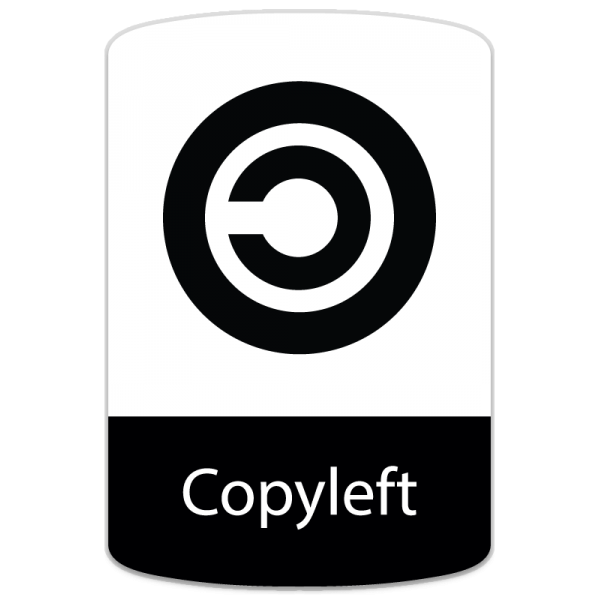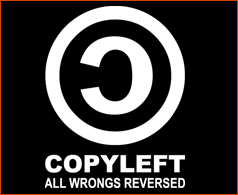
Intellectual property or IP is the discussion for this week. I have read/heard about the same in numerous occasion related to my FOSS activities. I am a supporter, promoter and advocate of FOSS. I have been using Open source software for quite a long time and I have mentioned the same in my documentations also. But till date I haven’t looked much about the intricacies of the whole matter of licensing, patenting copyright etc.
The Intellectual Property Rights or just IPRs is the legal form that give rights and protects them for the content creator as well as the end users. It defines what can be done and what cannot be. Some of these are internationally valid and each country has their on set of laws too. I will be considering here about the rights on the Software and designs I have written and created during the time of Fab academy. I usually provide Creative commons By SA which should be read as Creative commons attribution share alike. This is a kind of licensing declaration which here states that the content can be copied, reused and distributed if given attribute to the original creator.
Licensing is just a part of the IPRs. The list is long including patents, trademarks, copyrights, trade secrets, etc. The things which can be IP protected include original works, processes, creative works, inventions, designs etc. The benefits you get by IP protecting your work mainly handles the liabilities you bear, the conditions an end user has to take care while using the work, and also financial benefits.
All these said I am certain Open sourcing or sharing once work is the only way of progress, Think what happens/is happening when you need a certain tech but have to pay a hefty amount to the IP holder. It ill only slows down the progress in development and improvement of the tech. It will result in the process of re-inventing the wheel. How can anyone justify the process of monopolizing an idea or an information ??

You might have heard of the CopyLeft ideology, which propagate sharing a work and allows distribution of it. This is a license which doesn’t put your work completely in the public domain but conserve some rights and open up most of the necessary rights for sharing the work. Most of the FOSS licenses are following this ideology. Some of the prominent ones are
- Apache License 2.0
- BSD 3-Clause “New” or “Revised” license
- BSD 2-Clause “Simplified” or “FreeBSD” license
- GNU General Public License (GPL)
- GNU Library or “Lesser” General Public License (LGPL)
- MIT license
- Mozilla Public License 2.0
- Common Development and Distribution License
- Eclipse Public License
- Creative Commons
I will look into the Creative Commons and MIT licenses.
Creative Commons
It is maintained by a non-profit organization based out of America. It provide the option to legally distribute and give the work to the public. There are different flavors which the content creator can choose and make the license. I have discussed what I usually give under CC licensing.
The CC is very commonly used in licensing creative contents and you can see it around the web in many places(eg wikipedia). CC is inspired from commons ideology. The licenses is generally known as “some right reserved” similar to the “All rights reserved” of copy right.
A common standard declaration of the same is as follows
You are free to:
- Share — copy and redistribute the material in any medium or format
- Adapt — remix, transform, and build upon the material for any purpose, even commercially.
The licensor cannot revoke these freedoms as long as you follow the license terms.
Under the following terms:
- Attribution — You must give appropriate credit, provide a link to the license, and indicate if changes were made. You may do so in any reasonable manner, but not in any way that suggests the licensor endorses you or your use.
- No additional restrictions — You may not apply legal terms or technological measures that legally restrict others from doing anything the license permits.
MIT License
It is easy to understand compared to many other licenses. It has very limited restriction over reuse of the code. It is also compatible to many of the existing commonly used licenses like GPL and many other copyleft licenses. The license comes under the category of permissive licenses, which defined as “lets people do anything they want with your code as long as they provide attribution back to you and don’t hold you liable”. That is pretty enough for our needs now.
It states more clearly what all right are vested upon the end user which in my opinion is great.
Its ease of use and effectiveness has convinced me to use the same for my entire work dine during Fab Academy.
The MIT License (MIT)
Copyright (c)
Permission is hereby granted, free of charge, to any person obtaining a copy of this software and associated documentation files (the “Software”), to deal in the Software without restriction, including without limitation the rights to use, copy, modify, merge, publish, distribute, sublicense, and/or sell copies of the Software, and to permit persons to whom the Software is furnished to do so subject to the following conditions:
The above copyright notice and this permission notice shall be included in all copies or substantial portions of the Software.
THE SOFTWARE IS PROVIDED “AS IS”, WITHOUT WARRANTY OF ANY KIND, EXPRESS OR IMPLIED, INCLUDING BUT NOT LIMITED TO THE WARRANTIES OF MERCHANTABILITY, FITNESS FOR A PARTICULAR PURPOSE AND NONINFRINGEMENT. IN NO EVENT SHALL THE AUTHORS OR COPYRIGHT HOLDERS BE LIABLE FOR ANY CLAIM, DAMAGES OR OTHER LIABILITY, WHETHER IN AN ACTION OF CONTRACT, TORT OR OTHERWISE, ARISING FROM, OUT OF OR IN CONNECTION WITH THE SOFTWARE OR THE USE OR OTHER DEALINGS IN THE SOFTWARE.

Buisiness oppertunities of my project
I believe my project lie in the IoT domain. I think in the coming years there is going to be wide use cases of IoT. Devices enabled with sensors and communicating between themselves and to internet will become the norm. But right now it is in the infant stage, you can observe that their in not even a unified standard for IoT devices.
Anyways it is ideal to setup a company for doing business in my country(India), taking into consideration the sensitive issues like privacy which comes in hand with internet connected devices. Setting up a Private Limited company or an LLP can reduce the personal liabilities. The income may not be directly from selling the product, but through related services and using the data collected from the users. Frankly I don’t plan to delve into these in near future. But someday I will definitely give it a shot !